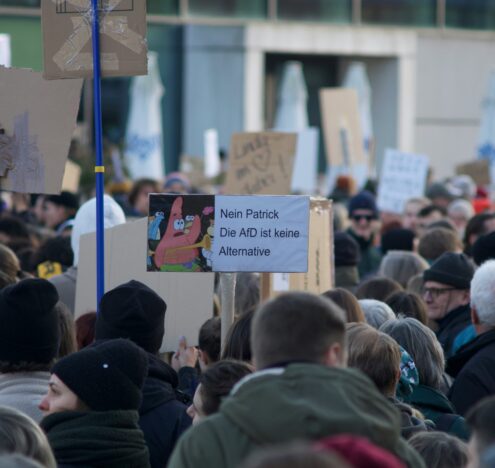This analysis was featured in Critical State, a weekly newsletter from Inkstick Media and The World. Subscribe here.
All of world politics is a stage, and all the world leaders are merely players, with their exits and entrance music. This theatricality of international diplomacy is ever-present, though it was perhaps rarely as visible as under the Trump administration. The former entertainer brought an intuitive understanding of the dynamics of professional wrestling to meetings more typically defined by intricate details of nuclear arsenals. Yet, even that official and prescribed seriousness hinges on diplomacy as a kind of performance, even if it is usually one so polite as to not acknowledge the stagecraft involved.
In “Wrestlemania! Summit Diplomacy and Foreign Policy Performance after Trump,” authors Benjamin S. Day and Alister Wedderburn focus on the particular stage of international summits. In particular, they examine how the actions, mannerisms, and choices made by former US President Donald Trump obliterated the false line between “performance” and “substance.” This is a lesson valuable for understanding the recent past, the actions of other right-wing populists, and the theatricality of international diplomacy in general.
Diplomats are performers in multiple senses. As agents of a distant state they stand in for the state, and in turn, represent it through their own personal actions.
“[W]e argue that wrestling is a pertinent lens through which to read international summits,” the authors write, “which also cordon off a masculinized arena in which expansive, complex issues can be distilled into a comestible narrative, arranged into a series of symbolic set pieces, and presented to a global audience.”
Diplomats are performers in multiple senses. As agents of a distant state they stand in for the state, and in turn, represent it through their own personal actions. At summits, world leaders take this on, even if they are just heads of government and not heads of state, but especially when they are both.
At the center of Day and Wedderburn’s analysis are the events leading up to, and then following from, the 2018 Singapore Summit between Trump and North Korea’s Kim Jong-un. The authors map the preceding diplomacy like a season of wrestling. This approach allowed Trump to initiate diplomacy while simultaneously threatening North Korea with nuclear oblivion, an arc that ultimately culminated in a face-to-face meeting but no lasting achievement beyond the routine de-escalation of time.
“Our argument is predicated on the belief that even the naturalized norms of decorum that conventionally govern foreign policy actors depend for their acceptance and reproduction on theatrical modes of presentation and staging. It is important to ask how these norms might help to constitute certain actors as ‘sensible,’ ‘serious,’ and ‘statesmanlike,’ even as these actors tolerate and often authorize violence, death, and environmental degradation,” the authors write.
It is unlikely that another world leader will come to power as in sync with the rules and arcs of professional wrestling as Trump, but the theatricality of diplomacy, especially summit diplomacy, will persist. Only now, instead of real adults acting on roles they’ve unconsciously rehearsed since they were children in Model United Nations, the theatrical nature is clear to see.
“The question of whether and how to regenerate or renaturalize these norms must, therefore, be accompanied by a reckoning with performance’s role in their construction, maintenance, and reproduction,” conclude the authors.




















